Austria
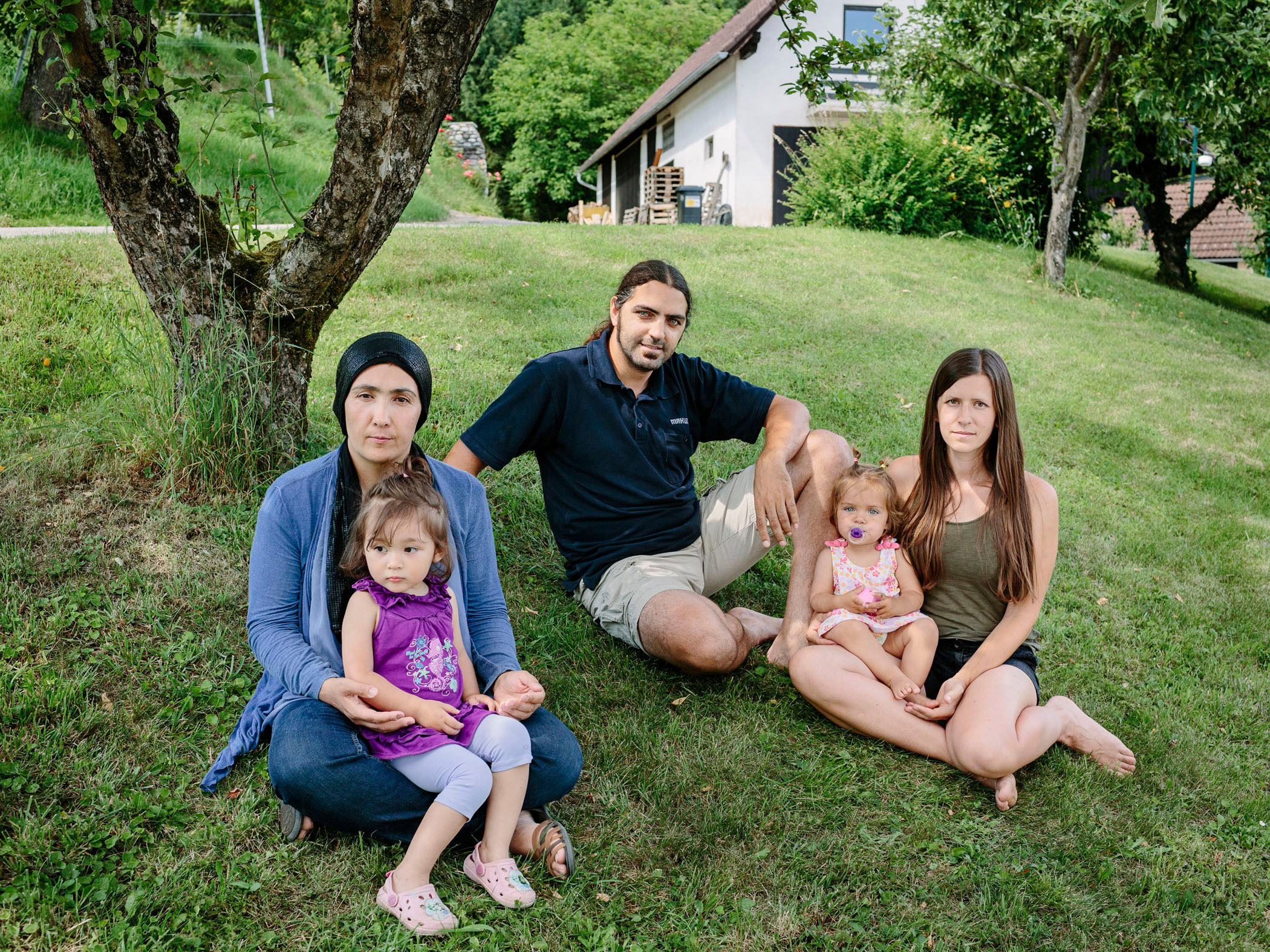
Afghanistan to Austria
Sabine David, husband Dominique and daughter Nora, host Afghan refugee Nooria and her daughter Aysu. When Nooria became pregnant, her husband left her. If she had stayed in Afghanistan, she would have been forced to hand over her daughter to her husband's sisters.
Diakonie, a Catholic Christian organisation, introduced her and Sabine in November 2015. Sabine (34) is a mechanical engineer who lives with her husband Dominique (36) and their one year old daughter, Nora, on a picturesque hilltop in Lavanttal, near the Slovenian border.
“A woman cannot live alone in Afghanistan and raise her own child without a man” says Nooria.
“It’s funny because in the beginning some people had reservations and concerns, telling us we cannot take in a stranger, that they will steal from us.
“But then when they met Nooria they changed their minds. Now they say ‘it’s not the same with women and children’. Their tone and language completely changed after meeting her” says Sabine.
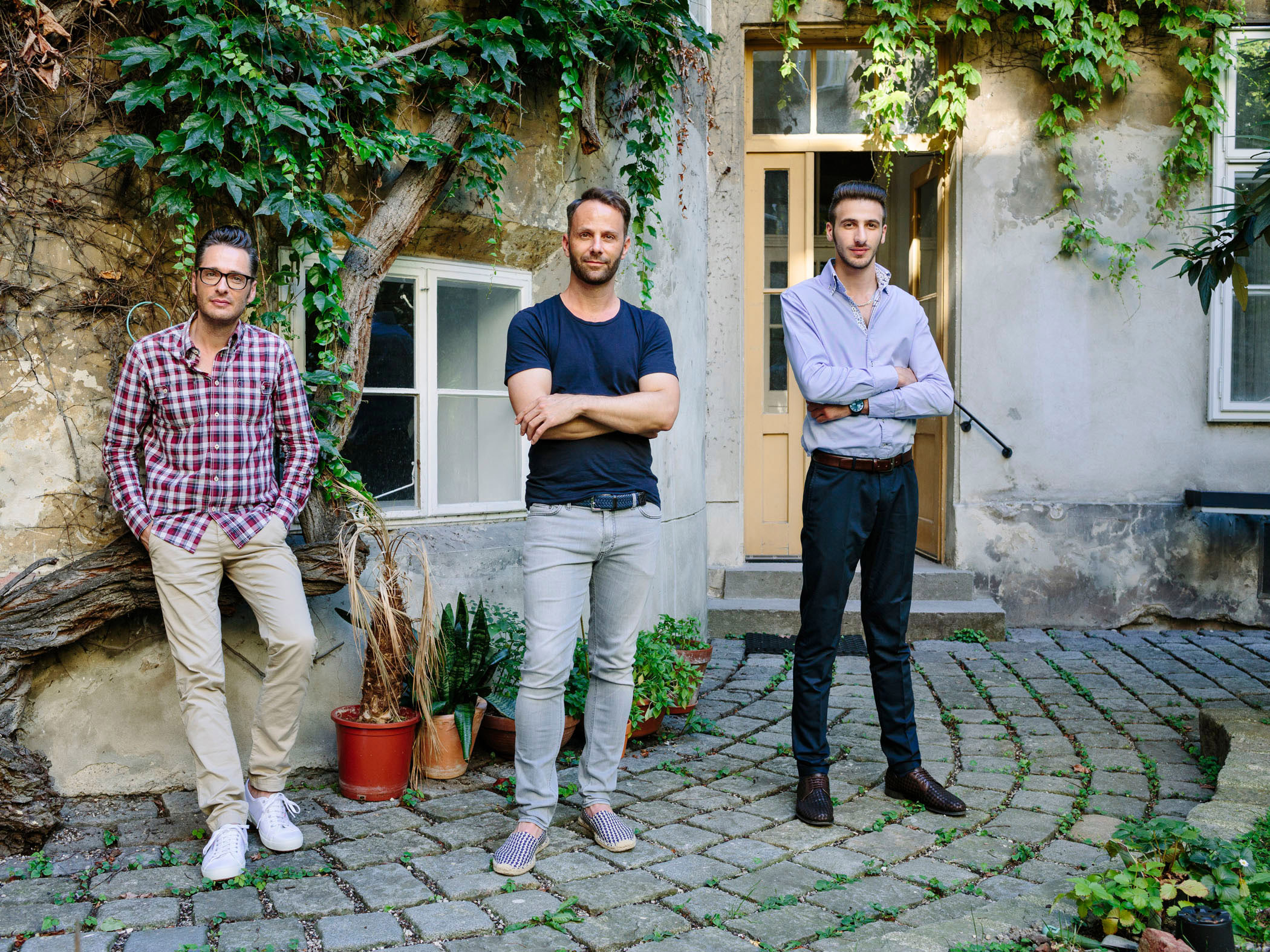
Syria to Austria
Thorsten Winz and Heino Sieberath host Syrian refugee Bashir Altawil (19). Originally from Damascus, Bashir arrived in Austria in December 2014 and received his residency papers 18 months later. He signed up with an organisation called Refugees Welcome which introduced him to Thorsten and Heino.
Bashir says he's been able to improve his German by living with Thorsten and Heino because they always help and correct him if needed. He also jokes that he's also learned how to iron his own shirts and clean up after himself for the first time.
“We felt obligated to bring our own efforts for integration” Heino says.
Thorsten said they had a good feeling when they met Bashir the first time. “It was instinct. We knew it would work.”
“I have friends from everywhere. I love Austria, it is so beautiful and open minded” says Bashir. “I love acting, the arts, it’s very modern here, but I miss Syria too.”
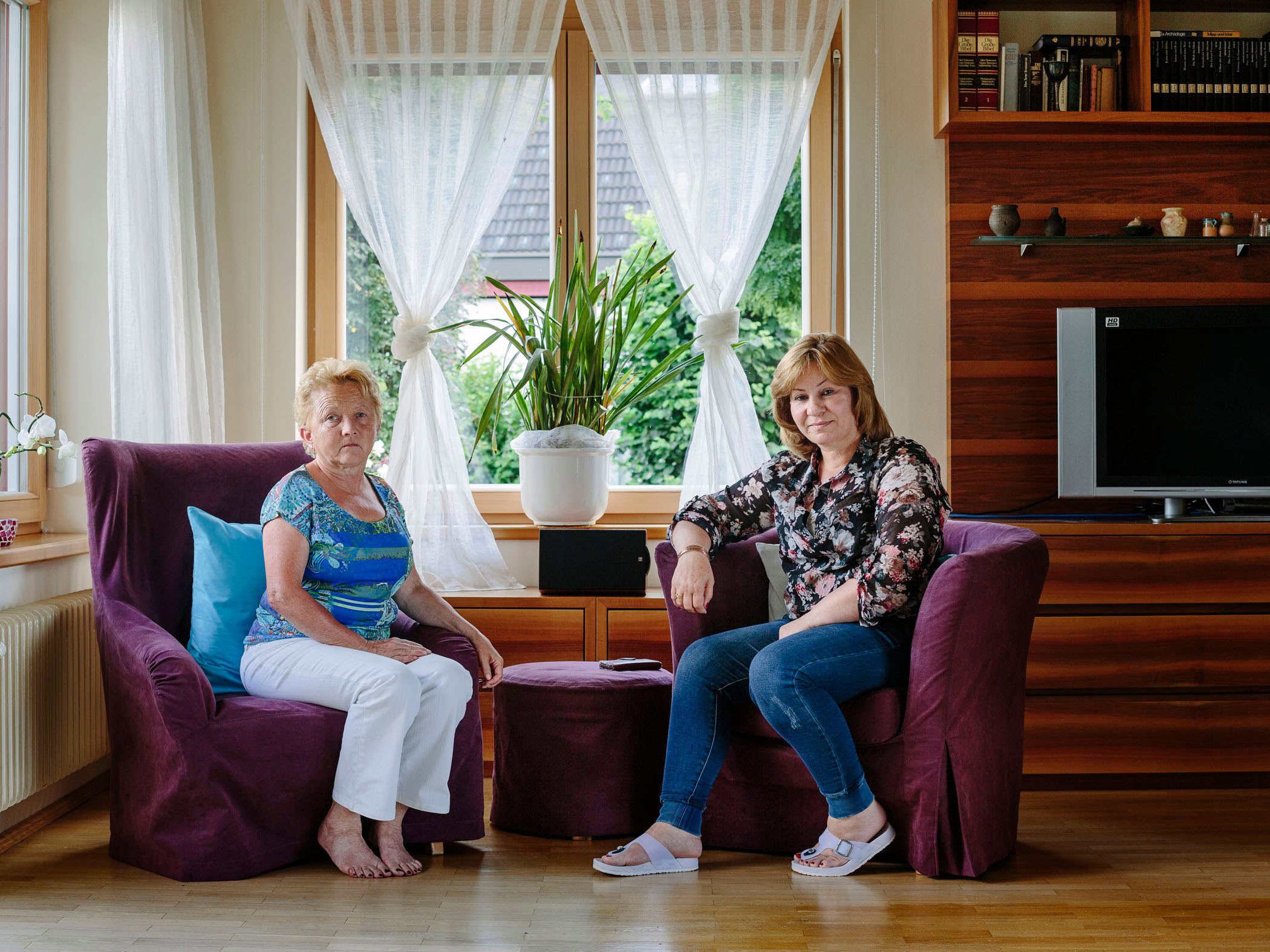
Iraq to Austria
Margarethe Kramer (59) hosts Iraqi refugee Souad Awad (49) in Lavanttal, Austria, near the Slovenian border. Souad arrived in Austria in November 2015 and stayed at an asylum accommodation centre in the city of Klagenfurt for six months where she helped in the kitchen.
In June 2016, she had the opportunity to move in with Margarethe. They were matched through Diakonie, a Christian welfare organisation.
Margarethe, whose husband is away for work most of the week, is delighted to have the companionship. “The whole experience enriched my life, with friendship and companionship” she says.
She admits that the experience helped change her perceptions. She had expected a headscarf-wearing woman with traditional views. “But I was really surprised when I met Souad” she says. She is so independent, so open minded, modern and totally against it.
“I feel like I am living in heaven now,” Souad says. “Margarethe is amazing, so sweet and her whole family is wonderful. I feel at home. I feel she’s like my sister.
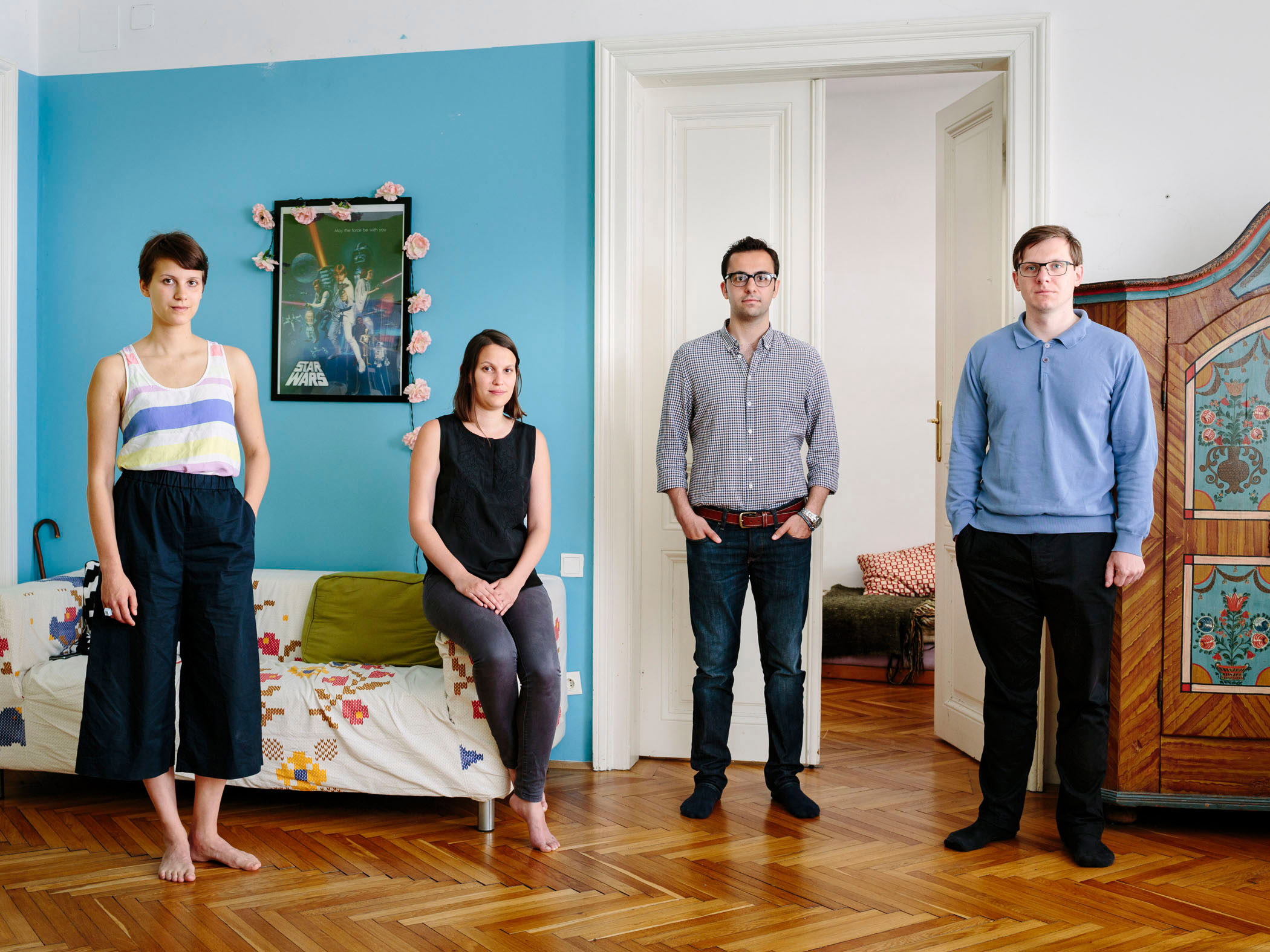
Syria to Austria
Valerie Schamberger shares a flat with Nora Katona, Roman Pable and Syrian refugee Mouhanad Mourad (27). Originally from Damascus, Mouhanad fled his war-torn country in 2012. He initially went to Libya, and eventually embarked on the perilous journey to Europe in September 2015.
After six rough days on the road, he stopped to shower and rest in Vienna. In those 48 hours, Mourad says he fell in love with Vienna and decided to stay. As soon as he got to a refugee reception centre, Mouhanad started helping in the kitchen, learned the language and made friends. He got his asylum papers in six months and soon after, moved in with his new flatmates.
Valerie said the roommates were initially concerned Mouhanad might require a lot of assistance and guidance. They were pleasantly surprised.
“Mouhanad knows more people than we do. His list of contacts is incredible and we didn’t have to step in – he doesn’t need us at all” says Valerie.
“We thought we might have to look after him like a younger brother” says Roman, “but we didn’t have to do anything. He’s also very orderly, very organised, a very German Syrian.”
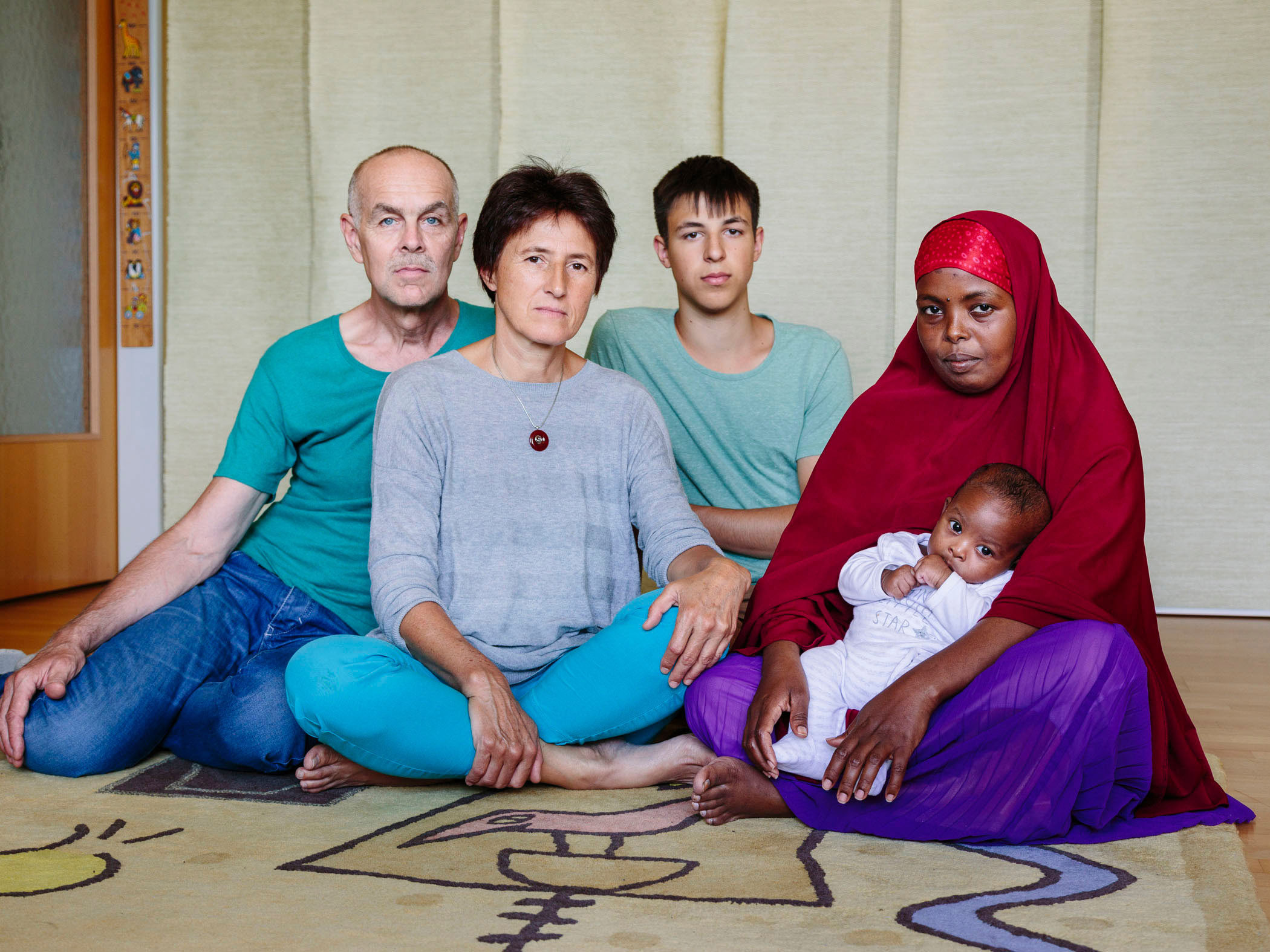
Somalia to Austria
Marianne Grasl, Rolf Nagel and Leo Grasl (18) host Somali refugee Leyla Mahamud and her baby boy Zacharia who was born April 29, 2016, a few weeks after she moved in.
Marianne’s partner, Rolf, is an electrical engineer who volunteers by teaching German language classes to refugees a couple of times a week. “I supported Marianne from the beginning with this decision. Take in a refugee into your home to verify if it’s true or not what is written in the media. I want to have direct contact with them and see and discover their world.
“I want to find out how they are on my own. I believe that why they came here, whatever they fled from, must have been really bad,” says Rolf. Marianne, a primary school teacher, wanted to offer her empty room to a refugee but she wasn’t sure she could handle living with a newborn baby. “At first I wasn’t sure I could live with a crying baby but it worked out. He rarely cries and when he does it’s so quietly, Laila calms him down immediately,” Marianne says.
“Now, if he cries I take him. I love having them here.”
“I was so scared when I first came here” Laila says, “but they are so good to me.” She is trying to learn the language so she can start working.
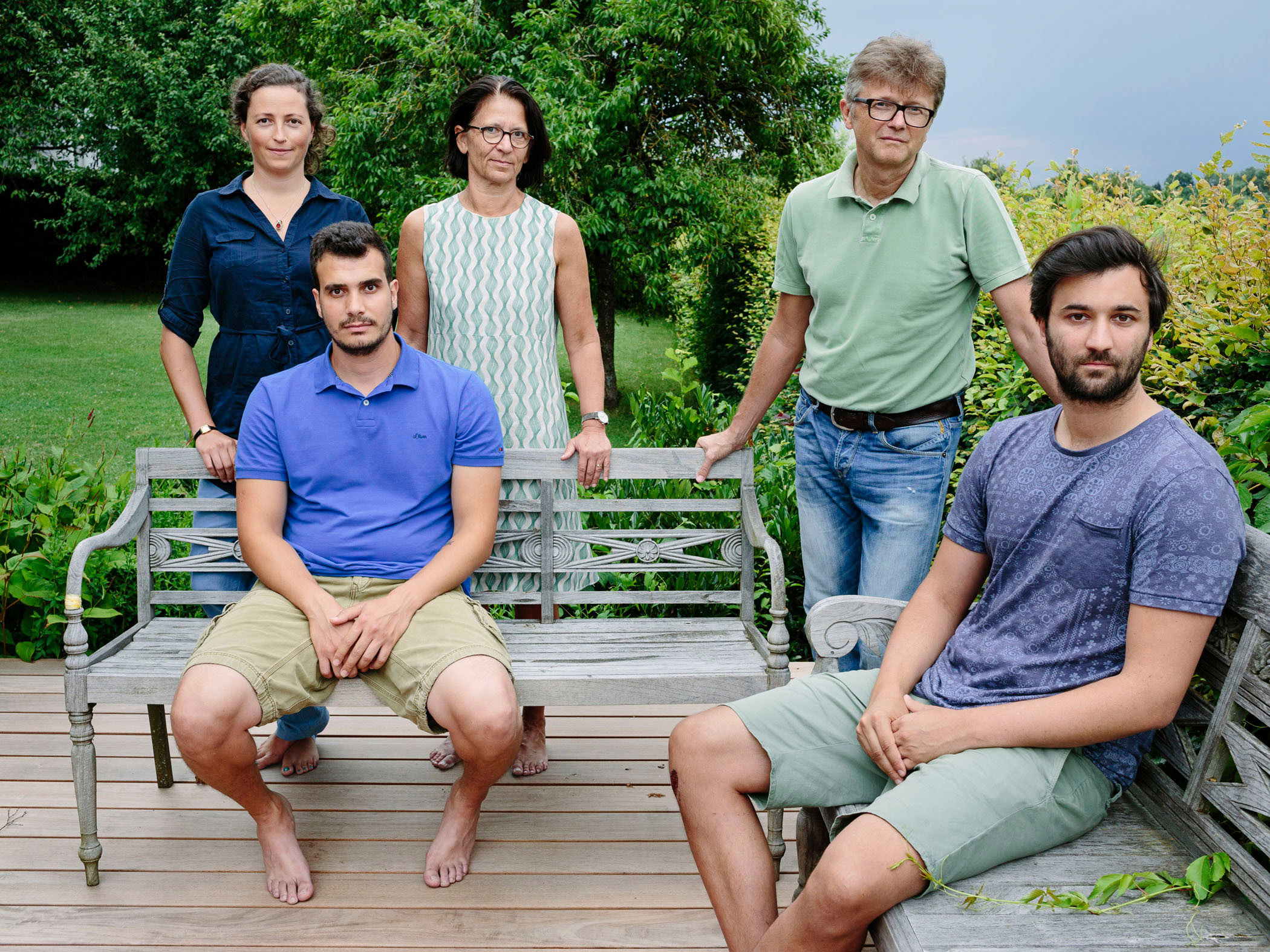
Syria to Austria
Martina Schamberger, with husband Engelbert, son Laurenz, and daughter Lea, host Syrian refugee, and former national basketball player, Nawras Ahmadook. It began in Aleppo, in 2006, when Martina's daughter, Valerie, was studying Arabic in Syria.
Nawras's family took her in and looked after her. When Valerie found out in November 2015 that Nawras had fled Syria and was near the Austrian border, she called her parents.
Nawras says “after everything I went through and everything I lost; my family, my friends, my country, my home, I really had nothing more to lose.
“I was not afraid of getting on that dinghy boat and crossing the sea. Leaving Syria is not a choice.”
“I feel like he is my son,” says Martina with pride. “He accepts me, a bit different than his mother, he opens up to me a lot, like a friend too. We have been together seven months now and never had a big fight.”
